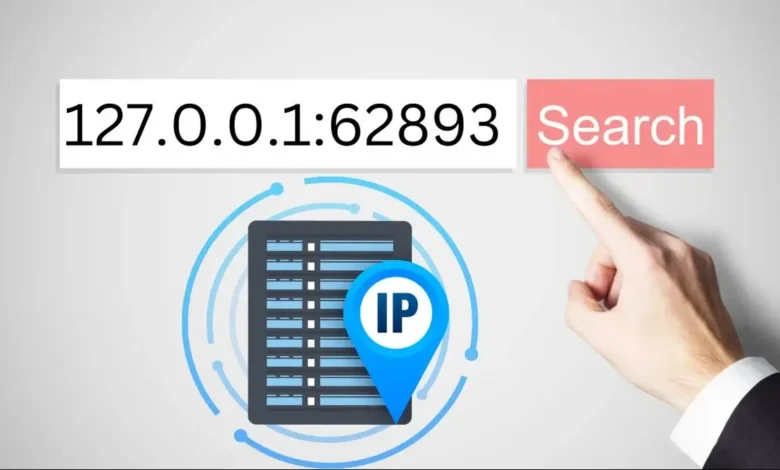Sure! Here are seven blog post titles that focus on 127.0.0.1:62893

Have you ever encountered the mysterious number 127.0.0.1:62893 while navigating your digital world? If so, you’re not alone. This seemingly random string of digits is significant in networking and online security. Understanding what it means can unlock a new insight into how your devices communicate.
In this blog post, we’ll dive deep into the meaning behind 127.0.0.1:62893, explore its importance, troubleshoot any issues you might encounter, and discover ways to enhance your online privacy using this unique address. Whether you’re tech-savvy or just curious about technology’s inner workings, there’s something here for everyone! Let’s unravel the secrets hidden within those numbers together!
What is 127.0.0.1:62893?
At its core, 127.0.0.1:62893 is an IP address paired with a port number. The IP part, 127.0.0.1, represents your machine’s local host or loopback address. Any network requests sent to this address are redirected back to your device.
The added 62893 specifies a particular communication channel on your device. Ports allow multiple applications to use the network simultaneously without interference.
When you access services on your computer—such as web servers or databases—you might interact with them through this specific combination of numbers and letters.
Using 127.0.0.1:62893 can seem technical at first glance. Stilit’st’s essentially just a way for programs to talk to each other within the confines of one system while keeping external connections separate and secure from outside influences.
The Importance of Understanding Your IP Address
Understanding your IP address is crucial in today’s digital landscape. It acts like a street address for your device, guiding data to and from the internet.
Knowing your IP information makes you more aware of privacy concerns. Cyber threats often target unprotected connections. By understanding how these addresses work, you can enhance your security measures.
Furthermore, troubleshooting becomes more accessible with this knowledge. If something goes wrong with your connection, knowing the specifics of your IP can help identify issues quickly.
Additionally, different types of IPs exist—static and dynamic. Each serves unique purposes based on user needs and network configurations.
Awareness of the geographical location linked to an IP address also affects content accessibility online. Many services tailor their offerings based on where requests originate.
Embracing this knowledge empowers users to navigate the web safely and effectively.
How to Troubleshoot Issues with 127.0.0.1:62893
Troubleshooting issues with 127.0.0.1:62893 can feel daunting, but it doesn’t have to be. Start by checking your application settings. Ensure that the correct port is specified and that nothing else uses it.
Next, try restarting your local server or application. Sometimes, a simple reboot clears out temporary glitches and restores functionality.
If problems persist, investigate your device’s firewall settings. Firewalls can block connections unexpectedly, so make sure 127.0.0.1 is allowed.
Additionally, examine logs for error messages related to this IP address and port combination; they can provide valuable insights into what’s going wrong.
Consider updating any relevant software or drivers associated with your network stack—outdated components may lead to connectivity issues you hadn’t anticipated.
Top Tips for Securing Your Connection on 127.0.0.1:62893
Securing your connection on 127.0.0.1:62893 is essential for maintaining privacy and protecting your data. Start by using a robust firewall to filter incoming and outgoing traffic effectively.
Next, consider implementing SSL/TLS encryption for any applications on this IP address. This adds an extra layer of security, ensuring that the data transmitted remains confidential.
Update all software associated with the local server regularly to patch vulnerabilities promptly. Outdated applications are prime targets for cyber threats.
Additionally, limit access to specific users or devices within your network and use robust authentication methods, such as two-factor authentication, whenever possible.
Monitor logs regularly to detect unusual activity early on. Early intervention can prevent potential breaches before they escalate into serious issues.
Creative Ways to Use 127.0.0.1:62893 for Enhanced Online Privacy
Exploring the potential of 127.0.0.1:62893 can be exciting for those passionate about online privacy. This unique local address allows users to test and enhance their security measures without exposing themselves to external threats.
One creative approach is to set up a personal VPN using this IP address. You protect sensitive data from prying eyes by routing your traffic through a secure tunnel.
Another idea is to use it as a sandbox environment for testing applications before they go live. This way, developers can identify vulnerabilities without risking actual user information.
Consider implementing proxy servers on 127.0.0.1:62893 to anonymise web browsing sessions further while keeping your real identity hidden from trackers and advertisers.
Utilizing browser extensions or tools that redirect requests through this local port can minimize exposure to harmful sites, making every internet session safer and more private.
The Future of 127.0.0
The landscape of digital connectivity is ever-evolving, and understanding addresses like 127.0.0.1:62893 is becoming increasingly important as technology advances. As we move towards a more interconnected world, using local IP addresses remains crucial for development and testing environments in software applications.
With the rise of IoT devices and smart home technologies, the future will likely emphasize local connections more. These connections provide a secure way to interact with devices without exposing them to broader networks that could be vulnerable.
Moreover, advancements in cybersecurity will continue to shape how we handle personal data over local networks like 127.0.0.1:62893. As privacy concerns grow, tools that leverage this address can offer safer alternatives for users looking to protect their information while enjoying seamless online experiences.
Embracing these changes means being proactive about security measures and staying informed about best practices related to local network usage. The potential benefits are that it’s an exciting time for tech enthusiasts eager to explore what lies ahead with tools such as 127.0.0.1:62893 at their fingertips.





